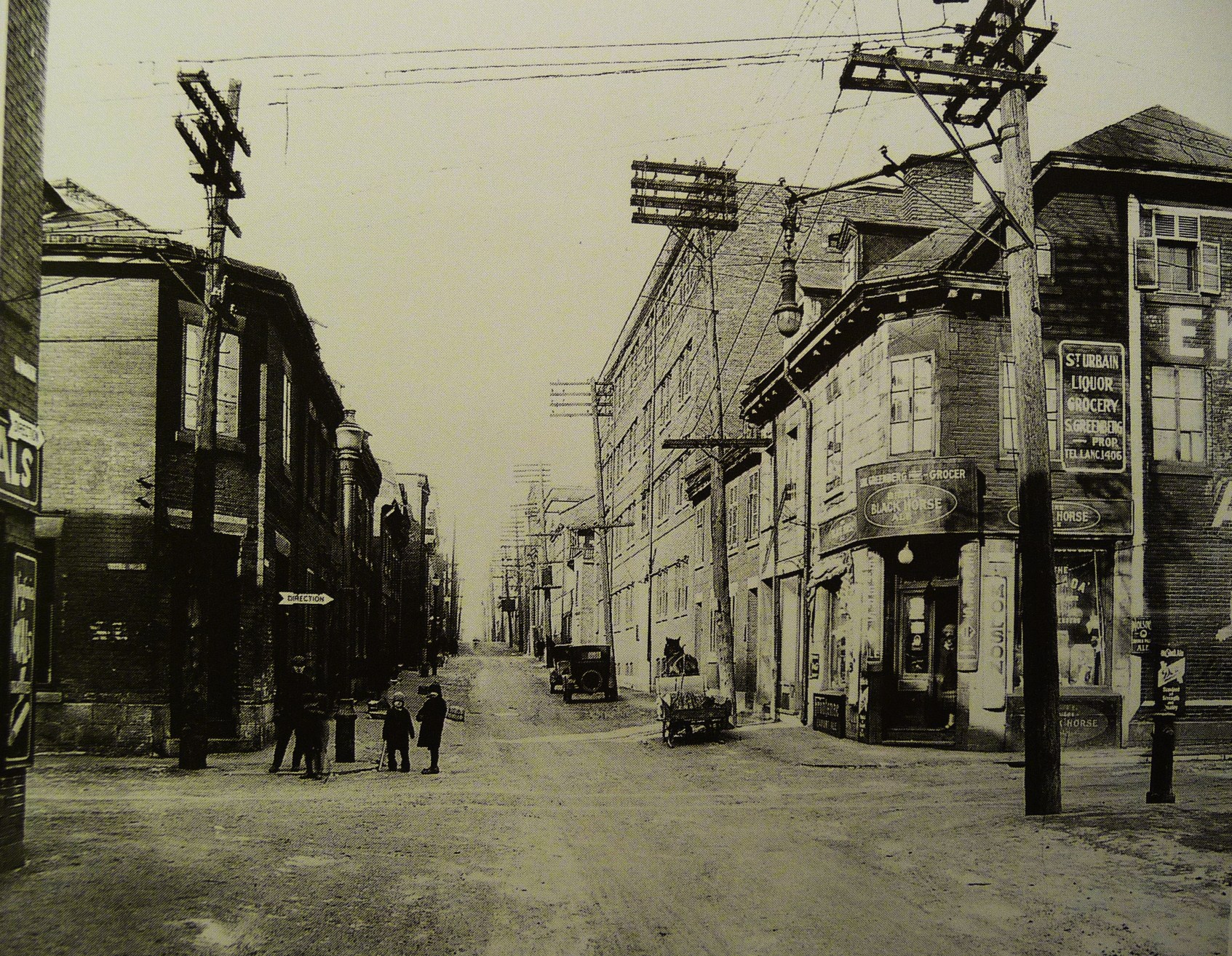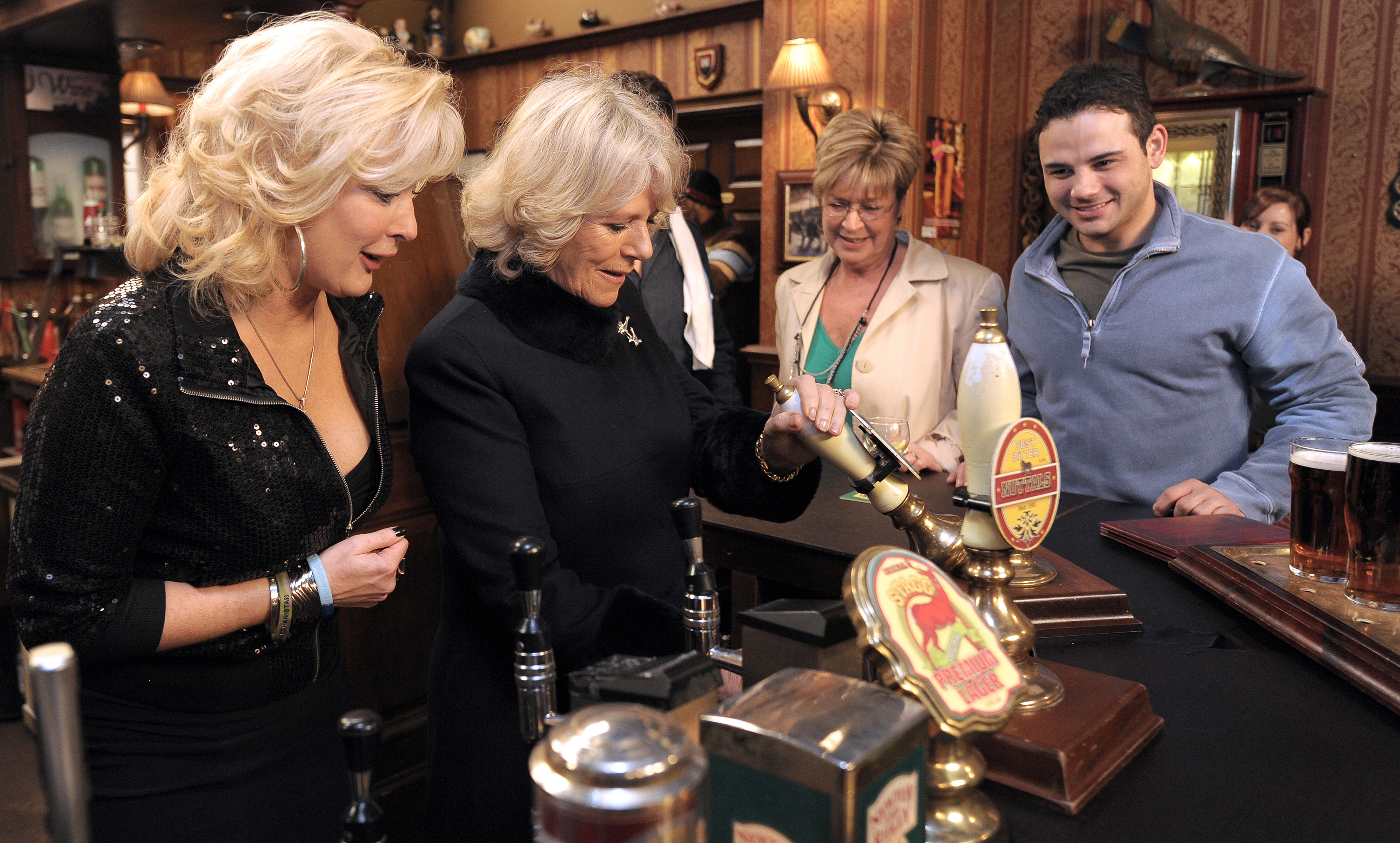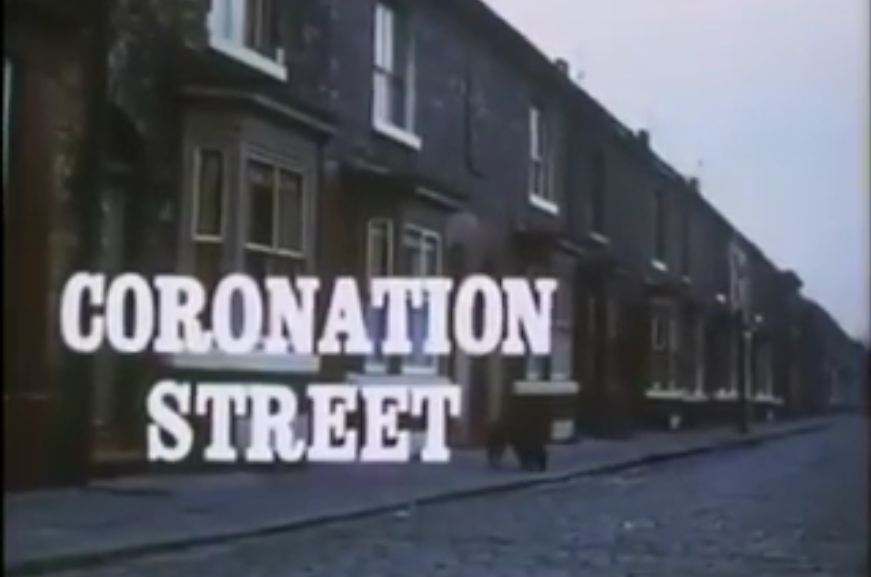In my late twenties, I went through a period when I was obsessed with Coronation Street. There was something about it that was comforting; yes, like any soap opera, the continuity was calming, but it was something more. I had been rejected from a PhD program and was realizing that journalism wasn’t a realistic alternative, and was teaching grammar and composition. I wasn’t yet sure what I was doing or who I was. And so, something in the working-class Northern English cast populating the longest-running daily serial drama in the history of television made normal, everyday lives feel worthy of note. Watching Weatherfield, the fictionalized version of a real suburb of Manchester, showcased on TV made me feel like my life was significant too.
I’m not a regular viewer any more, but like many Canadians, I still drop in. The show has been on since December 9, 1960, and while American soaps have been dropping like flies over the past couple of decades, Corrie—the program whose nickname sounds like an old friend—just keeps on going. On the show’s fiftieth anniversary, along with a variety of celebratory articles, the Canadian Broadcasting Corporation aired a documentary called Corrie Crazy: Canada Loves Coronation Street; a decade later, the show remains the highest performing TV show in Canada at 7:30pm, every weeknight.
“Comfort food” programming with low production values just feels Canadian: our homegrown offerings tend to peddle a comfortable lack of pizazz, in which specificity equals authenticity. See Beachcombers or Corner Gas for example; their depictions of hard work and small-town life demonstrate the desire to take a look at spaces where, to quote the Corner Gas theme song, “there’s not a lot going on.”
When I asked her, anthropologist Dorothy Anger-Stewart agreed about this specificity: “The American ones are not localized. They are vaguely set somewhere.” Anger-Stewart is an anthropologist of Miq’maq culture with a sideline in soap opera studies and, until recently, a long-time viewer of Coronation Street; as we talk, I find myself thinking about the luxurious environs of that somewheres-ville “Genoa City,” the setting for The Young and the Restless. “You never really know where [it is] and it doesn’t really matter,” continues Anger, “but the British ones are very specific to their place: Weatherfield is undeniably in Salford, Manchester. And that is the appeal: making them specific to their location it makes them feel more realistic.”
British expats might enjoy a taste of home, but everyone I know who watches Corrie is Canadian. Our Canadian ability to relate to this bit of British culture is something identifiably not American, something special. Justin Trudeau’s’s father Pierre famously said that living next to the US is like “sleeping with an elephant.” Against the backdrop of US pop culture, appreciating Corrie seems almost like an achievement.
It’s something of a point of pride, in fact, that it took one of our country-folk to get Coronation Street onto the airwaves in the first place: after Tony Warren’s idea for a serial show on working-class life had been rejected by the BBC, Torontonian Harry Elton not only commissioned but championed the series for ITV Granada in 1960. But Corrie wasn’t really cheered at the start: “The critics, all of them, knocked the show,” as he told Anger-Stewart on CBC radio in 1994; “Everybody was down on it.” But he knew a success when he saw it and made sure the show reached viewers. When it did, it was a hit.
Not for all, of course: even in 1962, the show was panned for its lack of realism and for romanticising the poor by Clancy Sigal of the New Statesman. Elton told Anger-Stewart the story of the fellow countryman who wasn’t as keen on Corrie: “There was a young Canadian who was writing criticism for one of the distinguished weeklies. He wrote…‘Granada are now putting out this crap, to make the working classes, who are victims of British society, feel contented in their miserable lot.’ That Canadian’s name was Mordecai Richler.”
Richler lived in London from 1954 to 1972, yet became one of the most famous Canadian authors of the 20th century, writing about the streets Montreal. Up to his death in 2001, he was as famous as he was curmudgeonly, but his critical words have resonance.
 Philippe Du Berger (CC BY 2.0) via Flickr
Philippe Du Berger (CC BY 2.0) via FlickrRichler’s only short story collection, The Street, contains semi-autobiographical tales of a different road: it takes place primarily on St Urbain, located around the corner from the apartment I’ve occupied for more than a decade and a half. It’s a book that, like Corrie, captures the particularity of a time and place—in Richler’s case, the 1940s Jewish neighborhood of Mile End in Montreal. Richler’s characters aren’t miserable, but they certainly aren’t contented; the eleven stories don’t shy away from aspiration, nor the oppression of poverty and anti-semitism. But reading Richler is less about relating than about representing a space and its population.
This summer I spent time in Birmingham, and found that when you actually are in England, the appeal of specificity in the abstract—the idea of specificity—runs headlong into actual specificity. In that context, the intimacy of “Corrie,” that feeling of closeness and specialness, suddenly made me feel uncomfortable.
The characters in Corrie have always looked like my family, a very white, lower-middle-class family, a demographic fact that stands in sharp contrast to an ultra-glam, constantly-besuited Genoa City Jill Abbott. But the image of working-class whiteness on the Street doesn’t represent the real Manchester, which is more than 30% non-white; in that regard, Weatherfield is as distant a fantasy as any American soap. There have been few Black characters on the show, and it was only in 1998 that the Indian-descended Nazir family moved in; there are still little more than a dozen non-white characters in the show’s over 70-strong cast.
Corrie’s Weatherfield presents a particular view of England, one in which authenticity is a virtue of specific accent, location, image, and class. It makes me think of Richler’s words: if Corrie valorizes the poor, it’s a specific kind of poor, a post-war, 1960s working-class existence that we see in the opening of the first episode of Coronation Street: the first image is of a grey, industrial sky followed by children singing and playing ball games on cobblestones. This first scene was bereft of color, and so has Corrie been, for a very long time; in 2008, a report from Britain’s Equality and Racial Diversity Commission identified characters on the show as little more than tokenistic stereotypes. Only last year, executive producer Kate Oates dutifully acknowledged the need for more diversity “both on the camera and behind the scenes.” This was arguably prompted by knighted Black actor Sir Lenny Henry, who spoke out about the whiteness of British film and television and a wide range of stars—including Idris Elba—who signed an open letter arguing the same in 2014.

However, beyond Black and minority ethnic characters—BAME, as the term is used in Britain—the show also doesn’t represent the largest wave of immigration in the country’s history, immigrants from Europe. Britain has changed a great deal since 1960: according to a University of Warwick study, “between 1966 to 1980, the minority ethnic group population more than doubled in size,” and the last census suggests that the non-white population of the UK is more than four times what it was in 1980. But the Street hasn’t changed. When non-white, non-anglophone characters appear, they speak in a dialect indistinguishable from their white counterparts,* never revealing a mother tongue other than the Queen’s English. And apart from small exceptions such as a few immigrant factory workers and a sub-plot about an unpaid Polish houseworker, EU migrants are nearly invisible.
It makes me think of a Sun newspaper cover image I saw last June. Under a typically British full-sentence headline–“As MPs vote on Brexit today, we say to them: You have a choice…Great Britain or Great Betrayal”–there were a range of supposedly “Great British” items: a chip shop, an old double decker bus, an old Mini Cooper, an even older Stonehenge, and a confusing depiction of the Loch Ness Monster. The cast of Coronation Street could have been slotted into that collage. But most these icons of UK pride are far more complicated than they appear. The fish of fish and chips fame came to Britain via Jewish refugees from Portugal and Spain, fried potatoes originate in France and Belgium; the Mini was designed by Alec Issigonis, a Greek immigrant; the Loch Ness Monster is… fictional? Like the Canadian-championed, illusory Corrie, this idealized conceptualization of Great Britain is a confected fable, a tapestry woven out of stories, history and connections with Europe and beyond.
As the promises of the Brexit campaigners became more and more sensational and ridiculous, they came to resemble the equally sensational and ridiculous recent storylines on Corrie. Even Dorothy Anger-Stewart told me she’s stopped watching because it just isn’t realistic anymore. But I used to think that even show as imperfect as Corrie still reminded us that small places are important; when people moved from the Street to London, it was as if they would fall off the edge of the earth. But I now think about what that might suggest about Britain, that it’s expansive enough on its own, without needing connection to anyone else (certainly not the EU). “Ending the free movement of people” appears on the first page of a document laying out the broad outlines of a future relationship with the EU and UK.
The Letters to the Editor in that issue of the Sun extolled the faded valour of the country, insisting that in the face of any Brexit-caused economic collapse, Britain’s Dunkirk spirit would be awakened; there’s a palpable sense that Britain was at its best back when people were living on rations, the era that had just come to a close when Coronation Street first went on the air. For all the talk about economic advantage—which seems to be as much of an illusion as a monster in a lake—it’s clear that Brexiters want Britain to look more like Corrie.
Soap operas are pleasurable because they alleviate anxiety, because there will be always be another day, another episode. If you step away for a day, a month, or even years, Corrie will still be there, as it has been for almost sixty years, and nothing new will disrupt this world. I used to find this quaintness comforting; I used to find the image of Britain on Coronation Street, of a predominantly white, anglophone, working-class space, a place for me to retreat to, a mirror of my particular version of Canadianness.
Perhaps I need to listen to Mordecai Richler: Corrie is crap that makes people feel contented with their lot, especially as the news about Brexit gets worse and worse. In my home province of Quebec there’s a government that has its own problems with immigrants—wanting to reduce their numbers and test on “values” as well as language—I see the danger of the nostalgia offered by something like Corrie and I find myself turning more to Richler’s Street. He wrote about a place around the corner from where I’ve lived for most of my adult life, but it wasn’t a reflection of me, nor was the goal to placate and reassure. Perhaps that’s the kind of specificity that really matters.
*a previous version of this article misdescribed the Mancunian accent as spoken on the show as “Pie and Mash,” owing to a mistake in editing. We regret the error.






